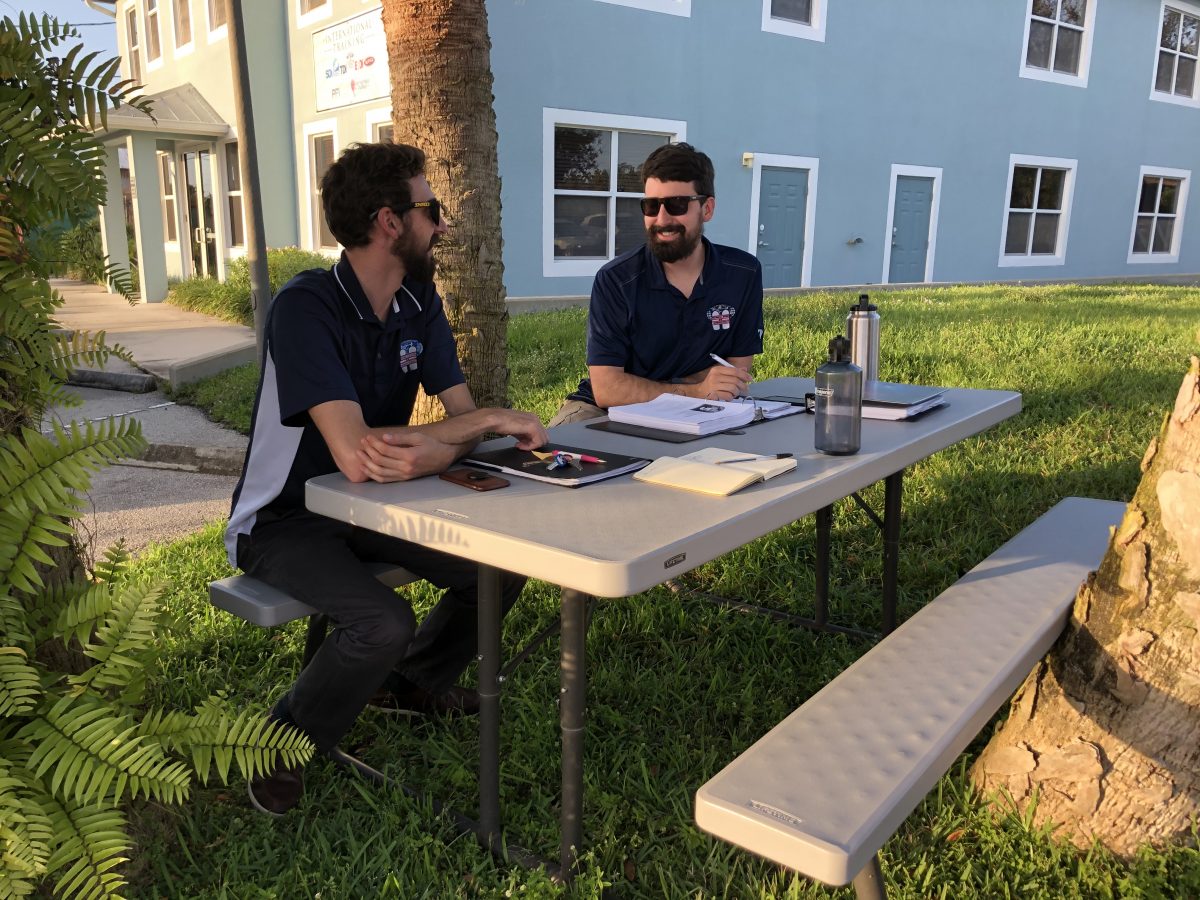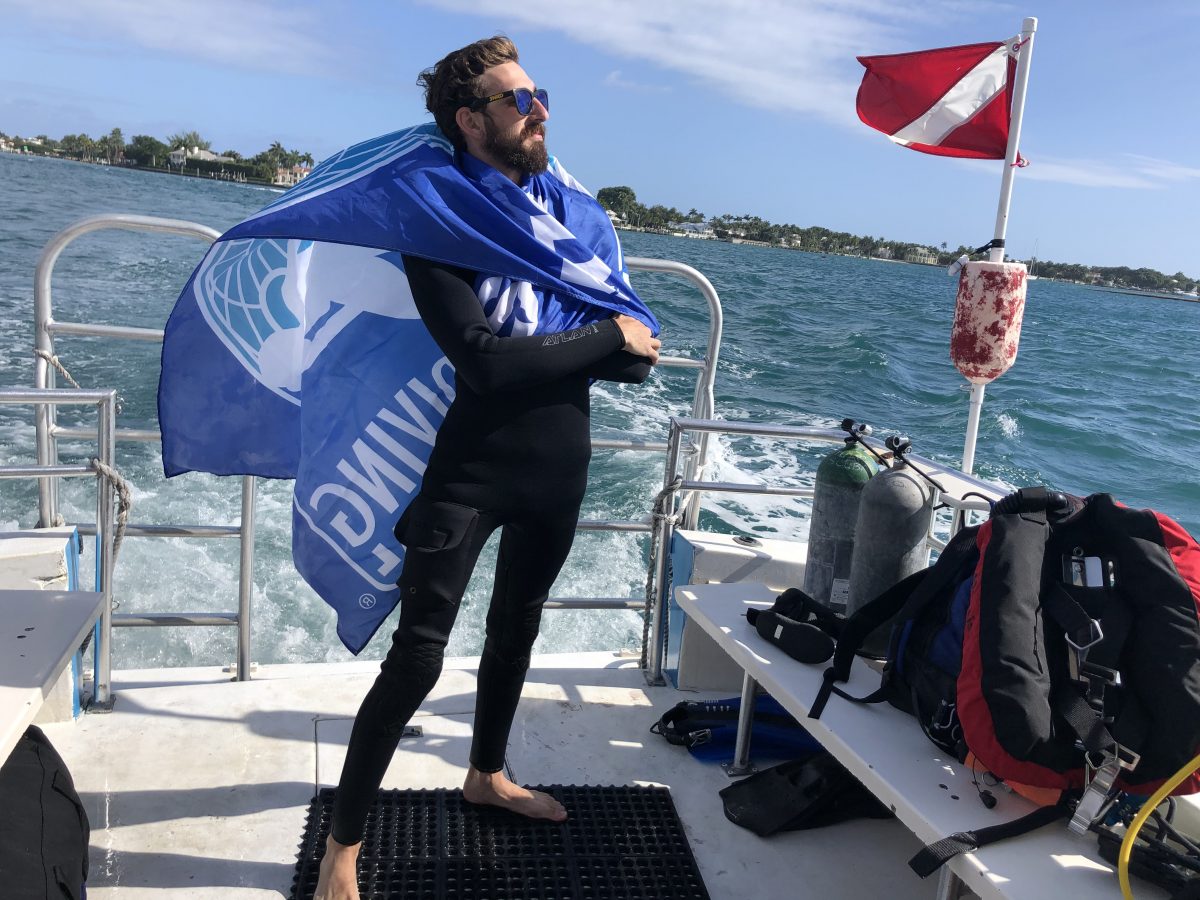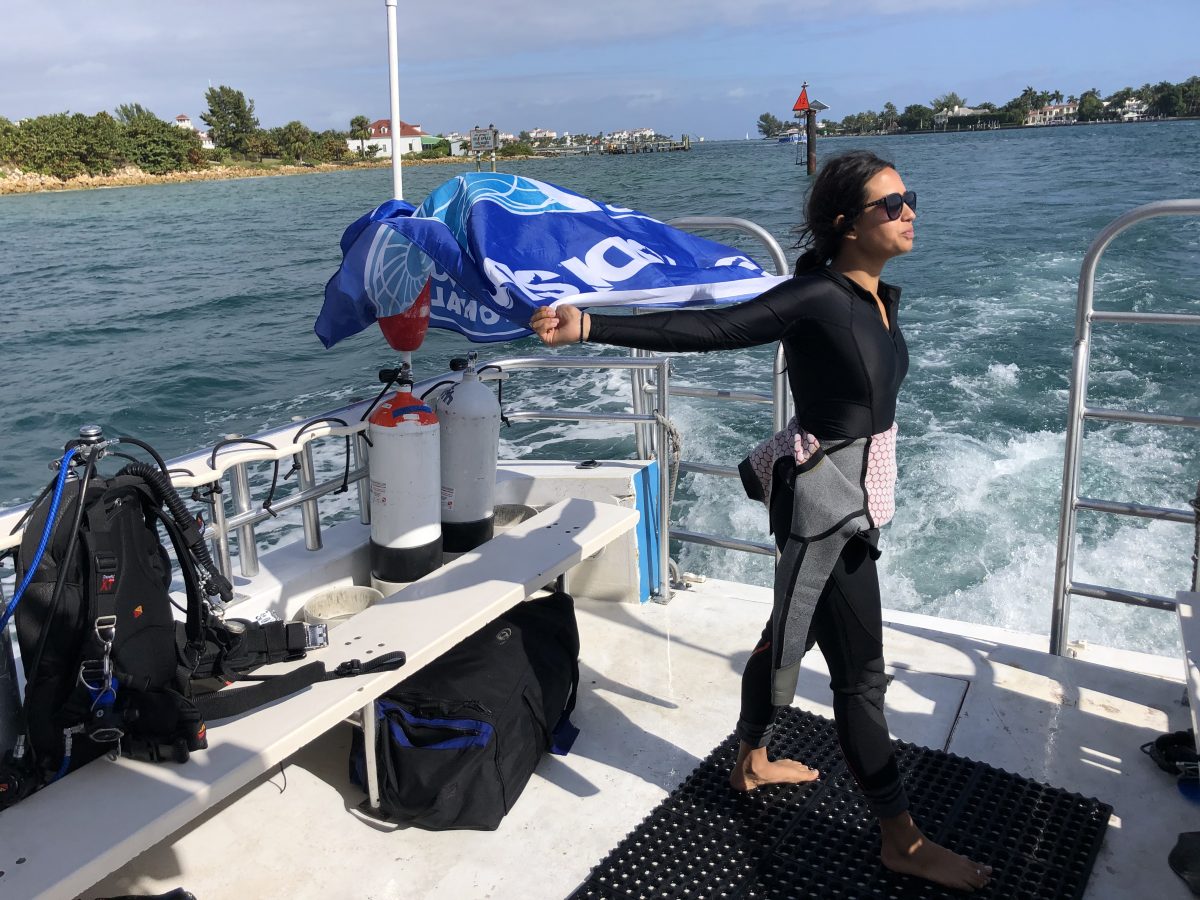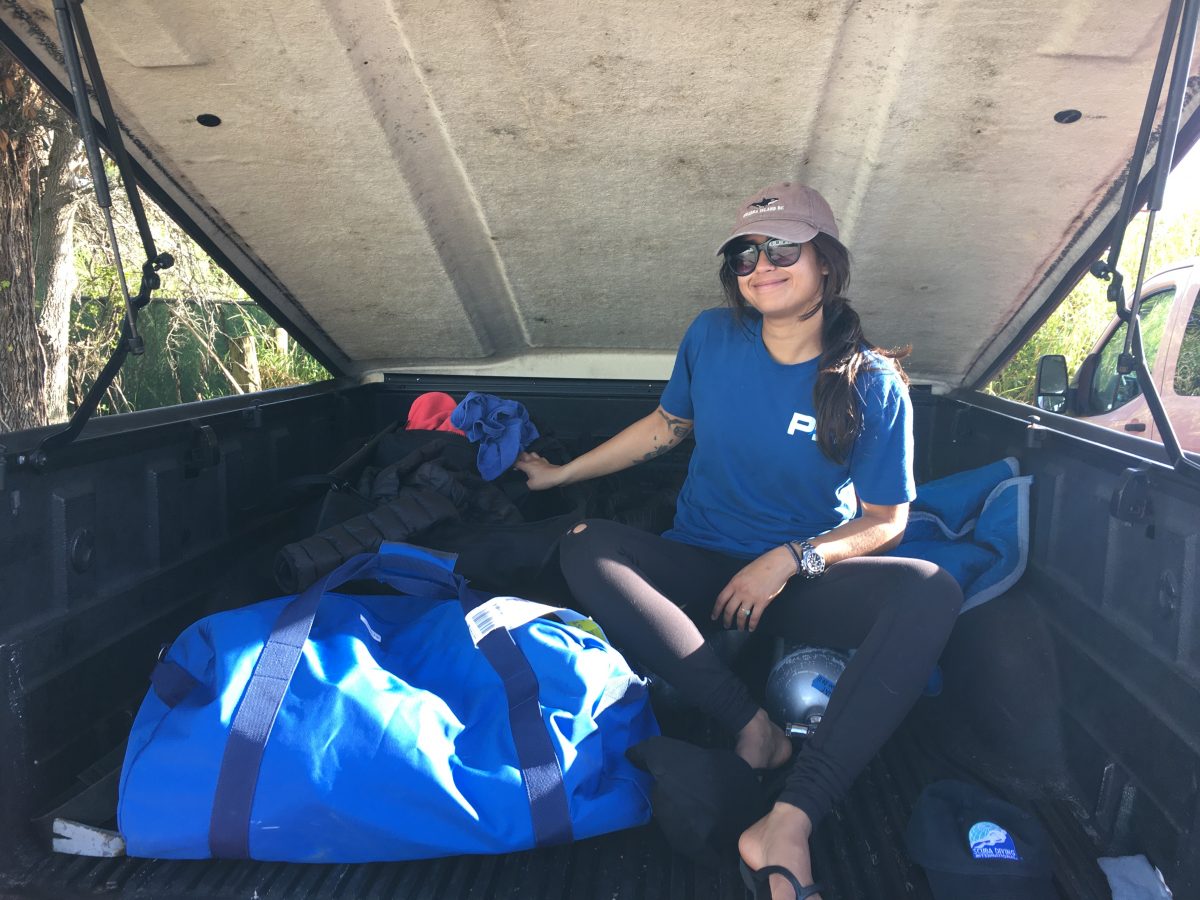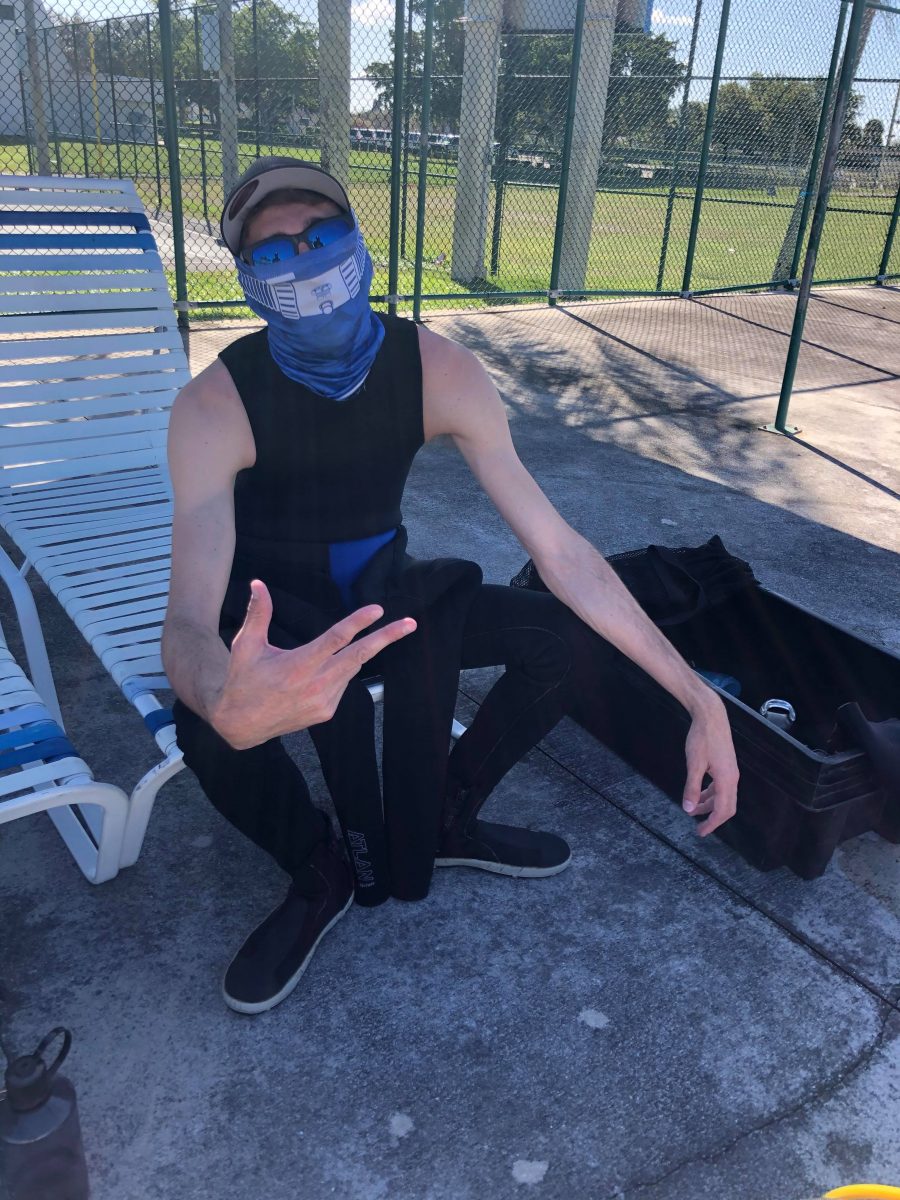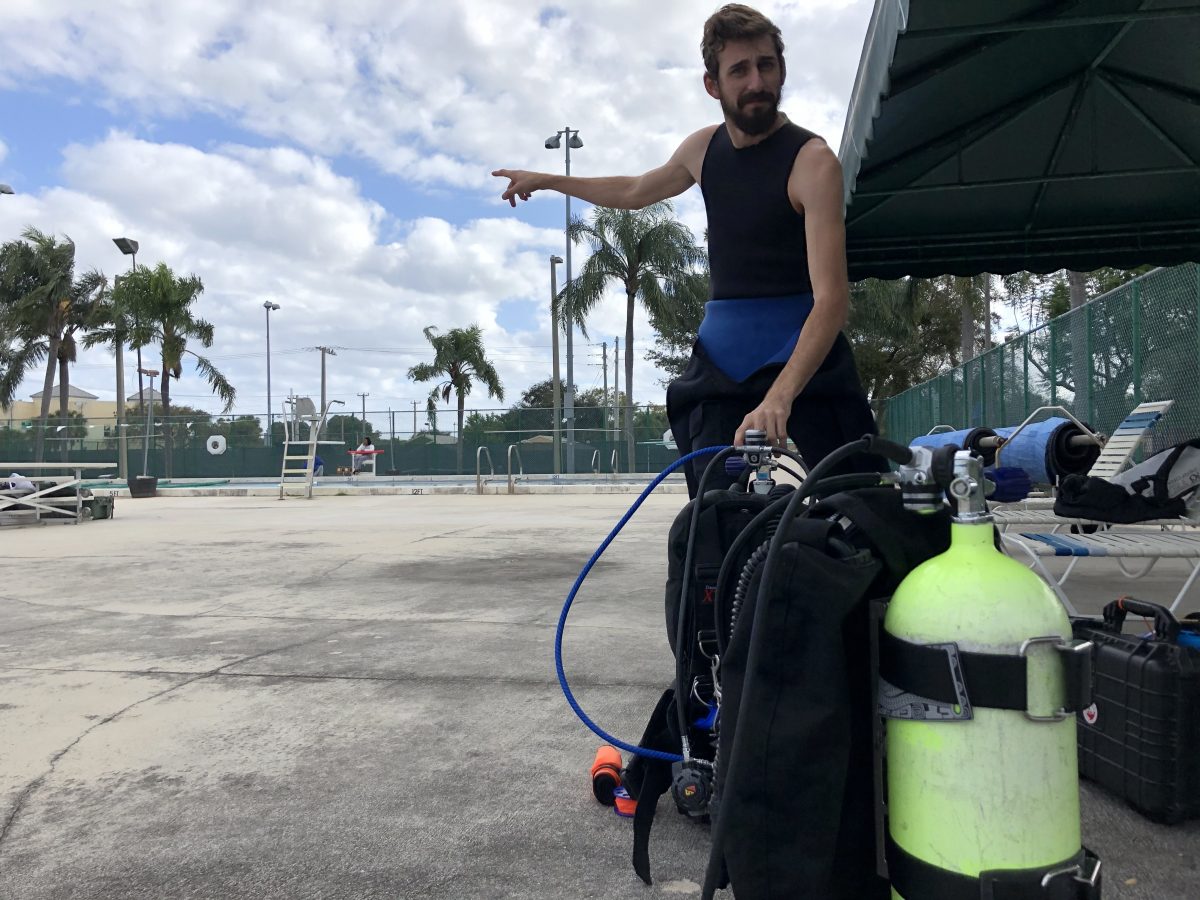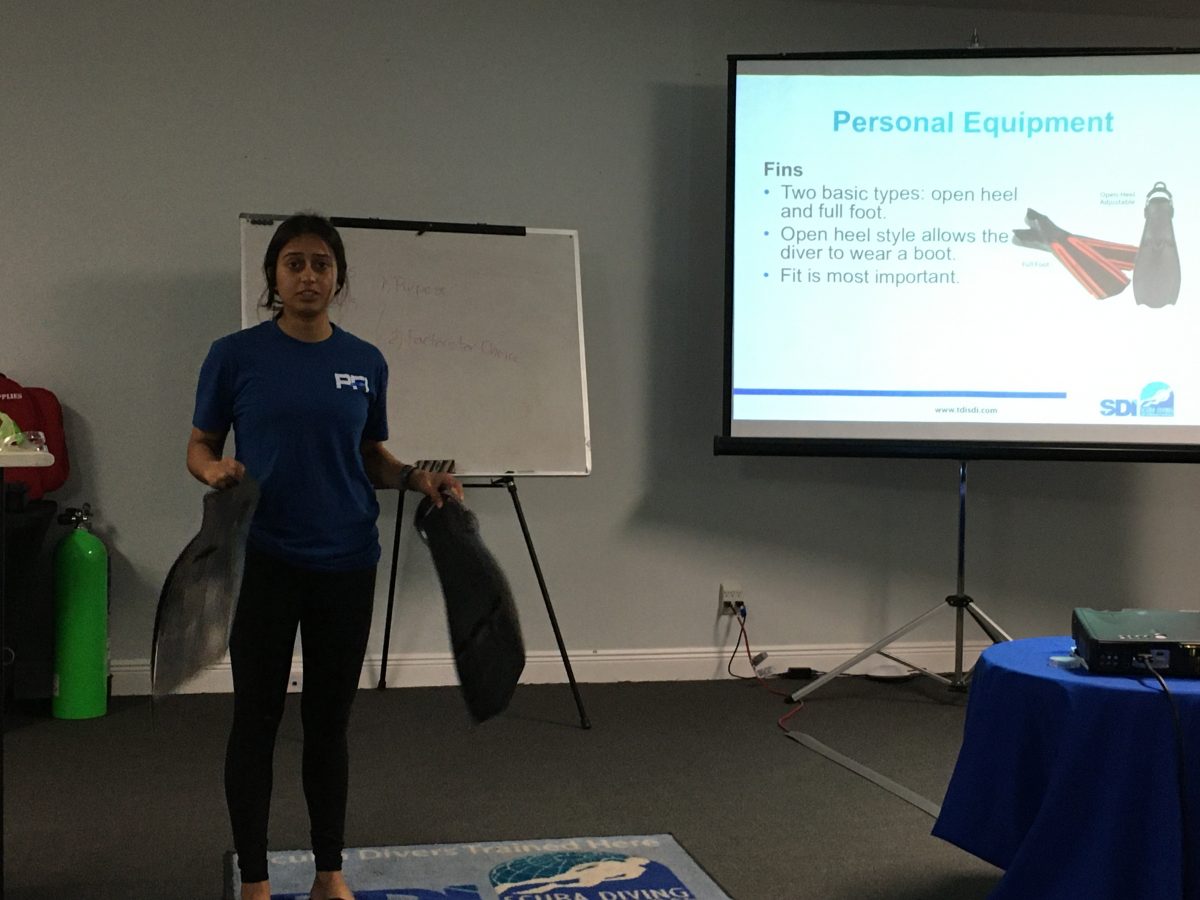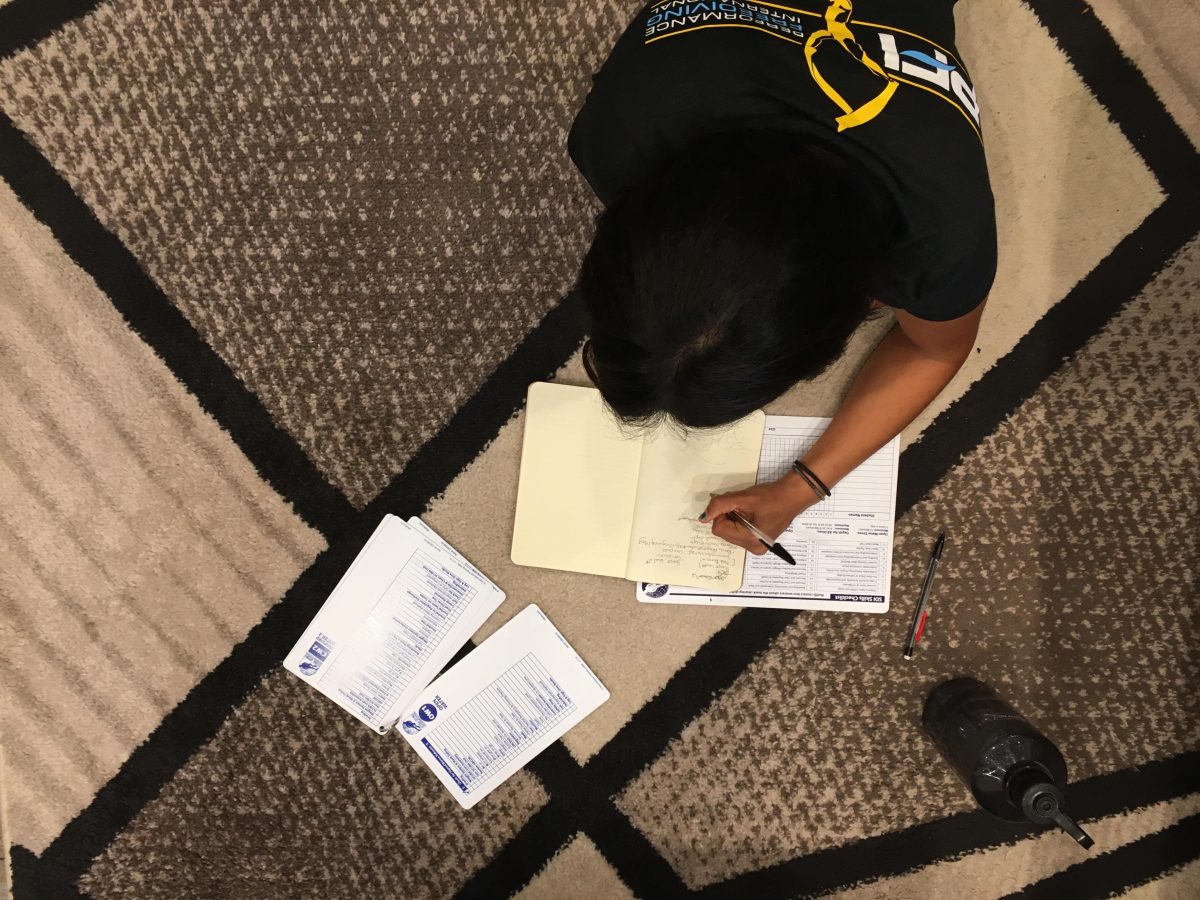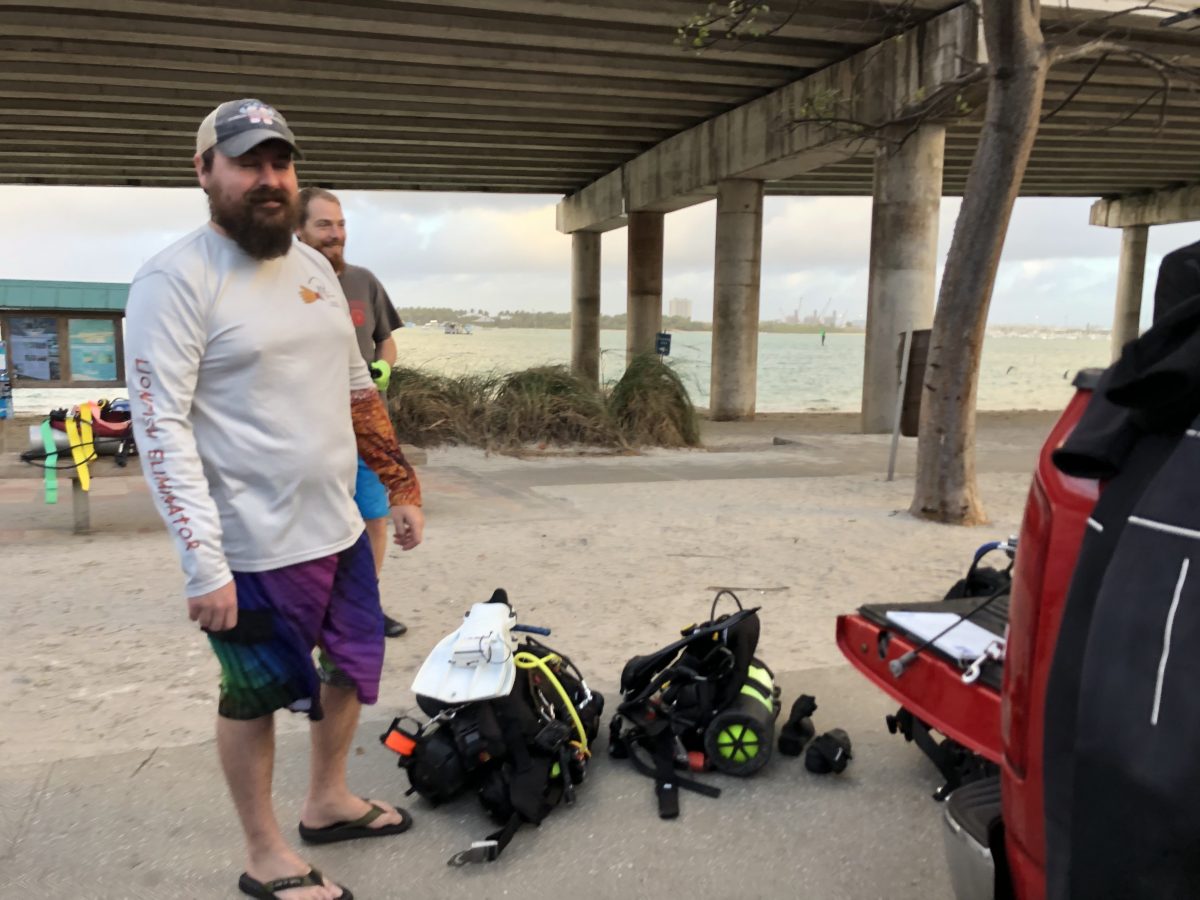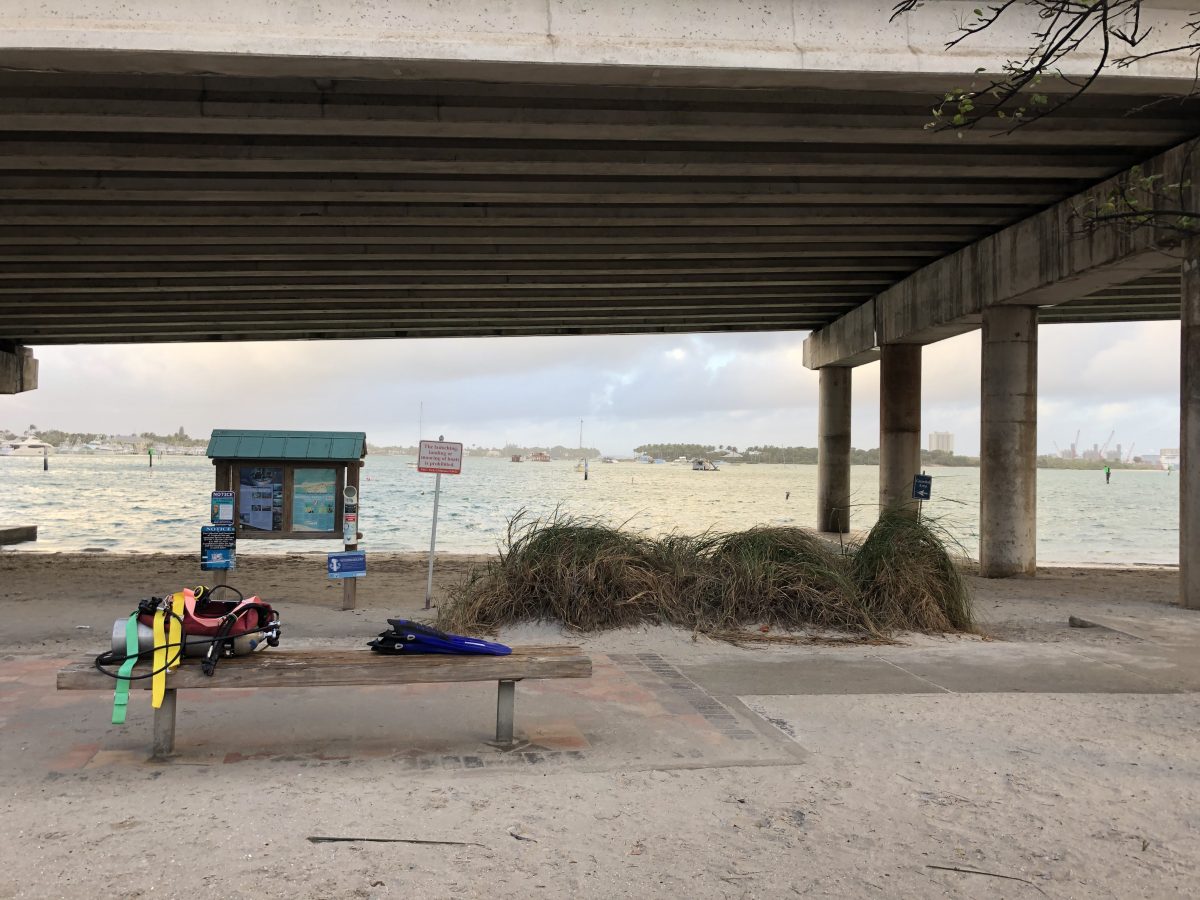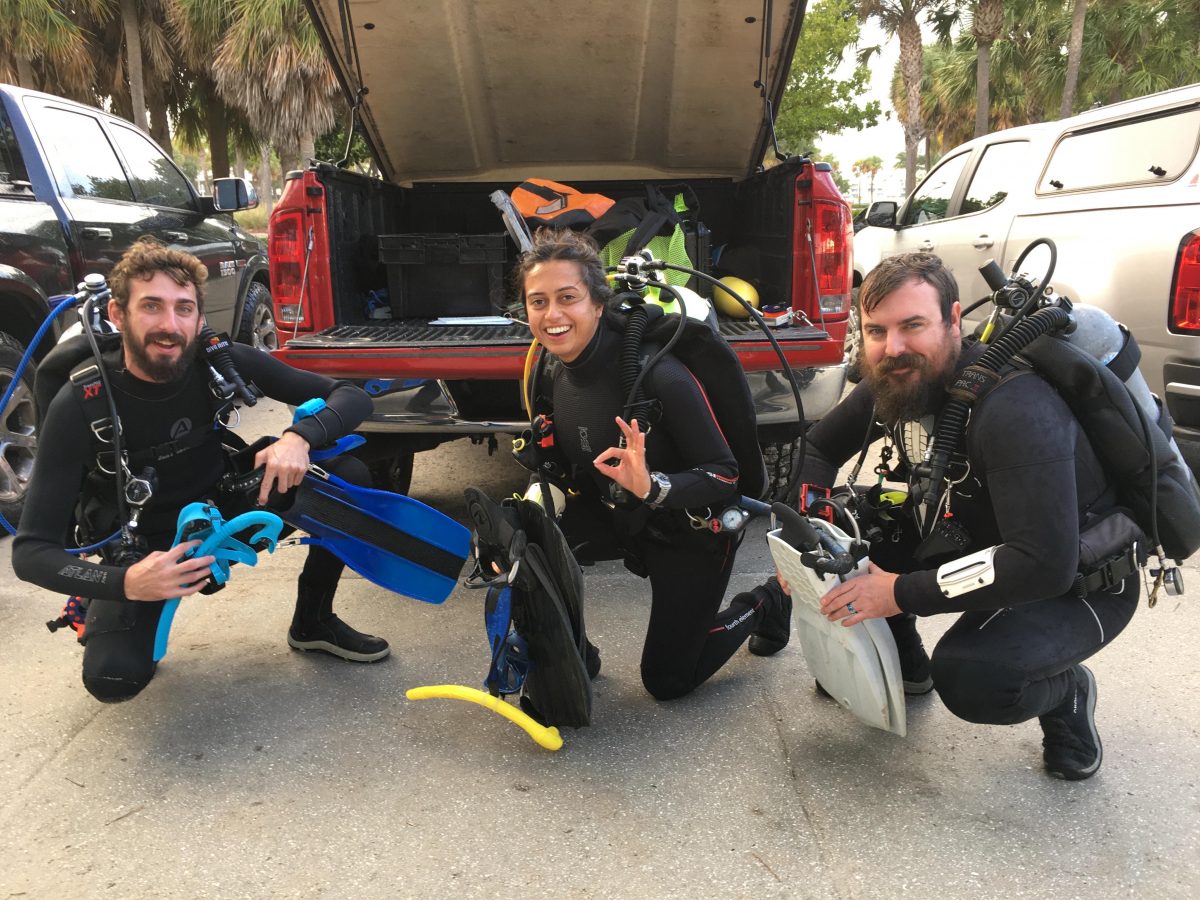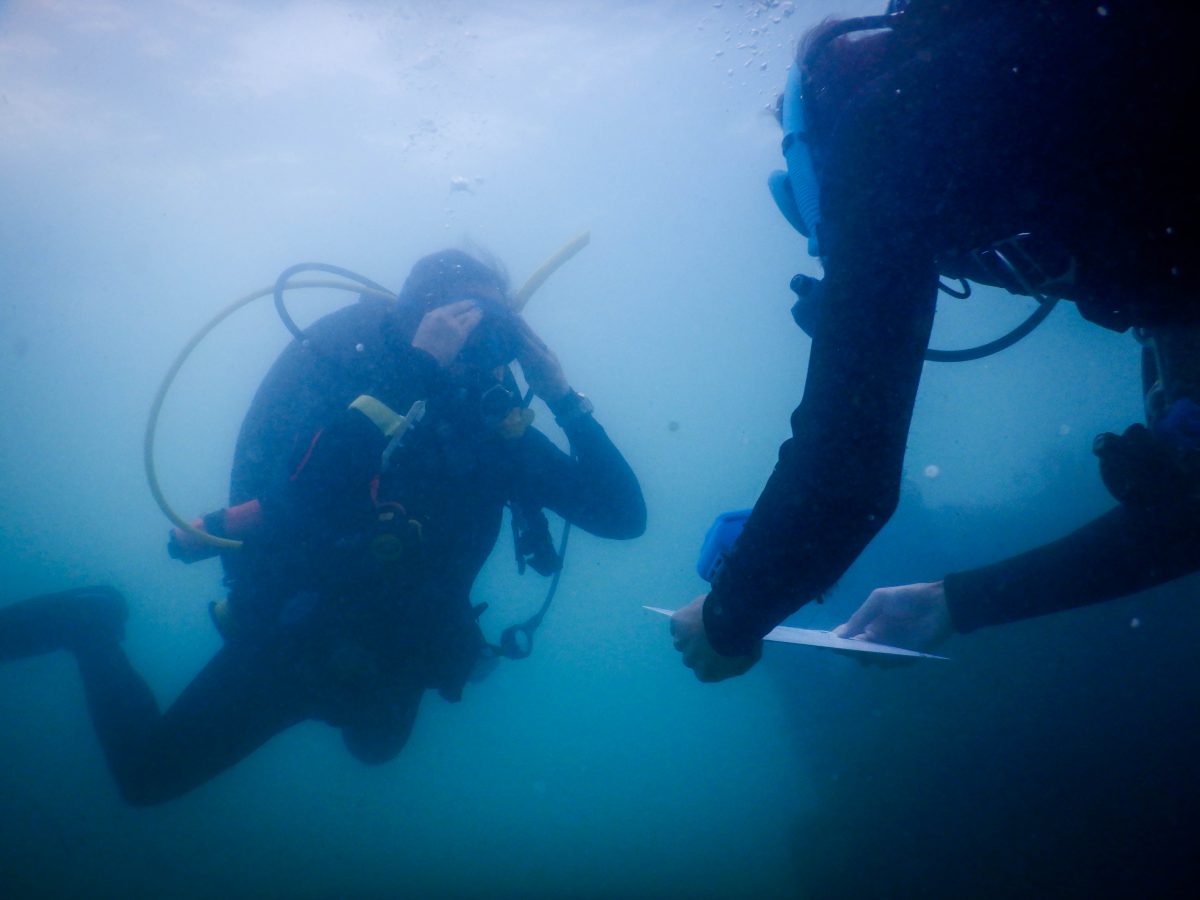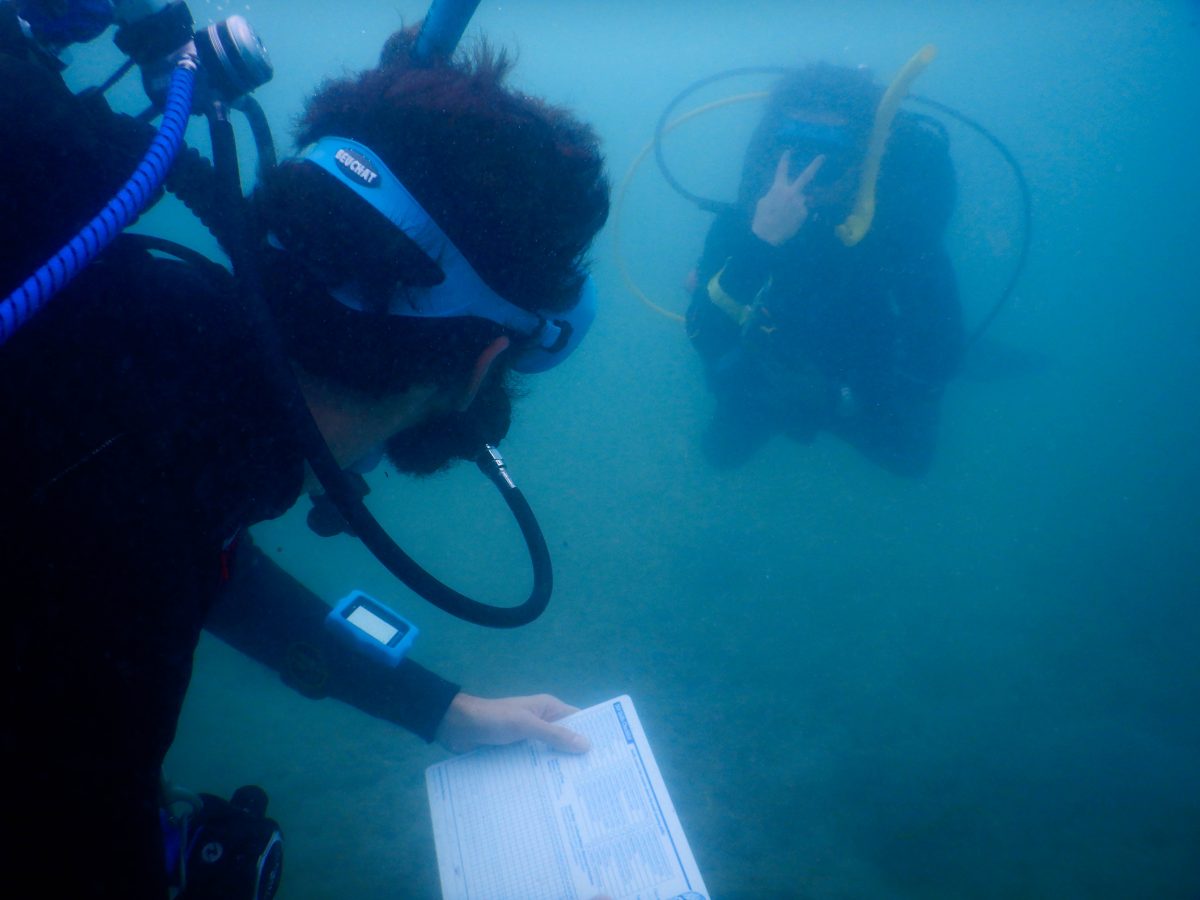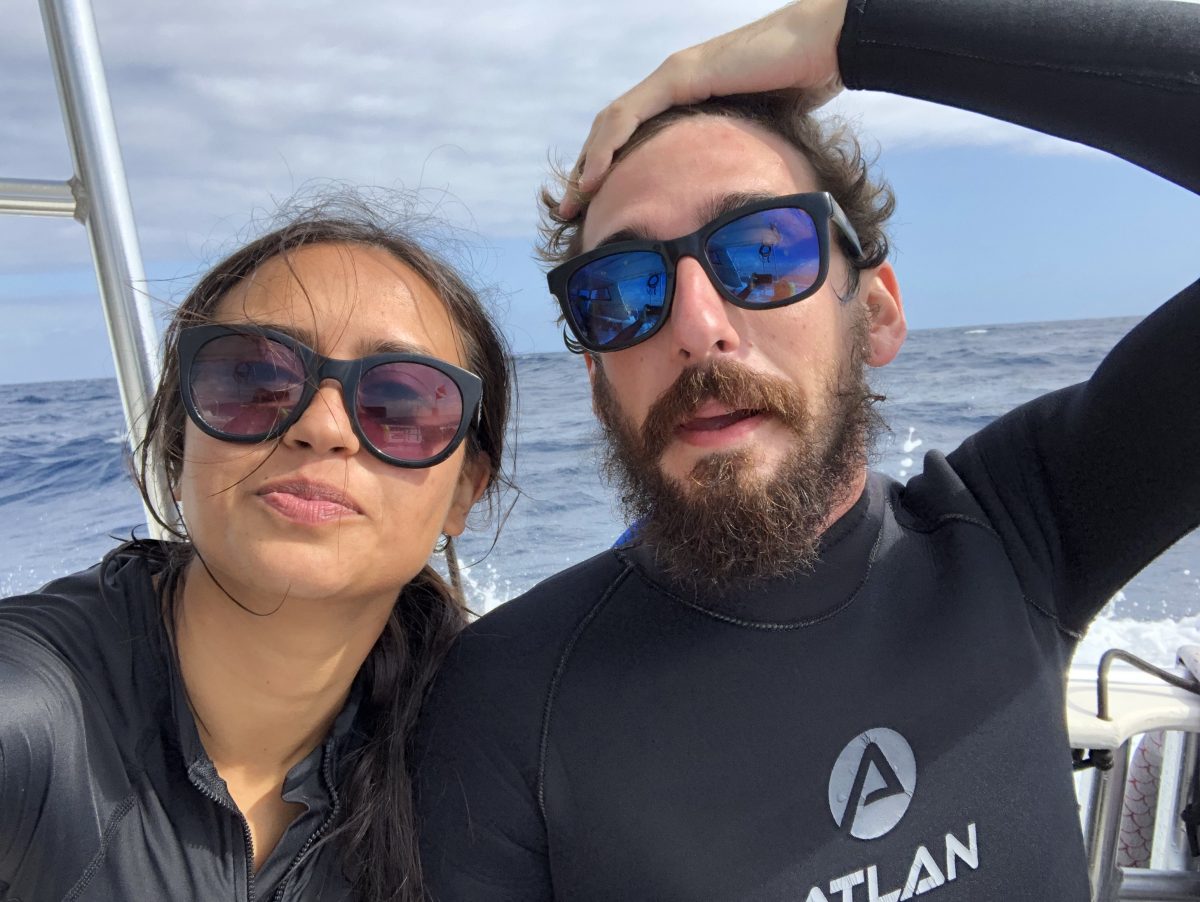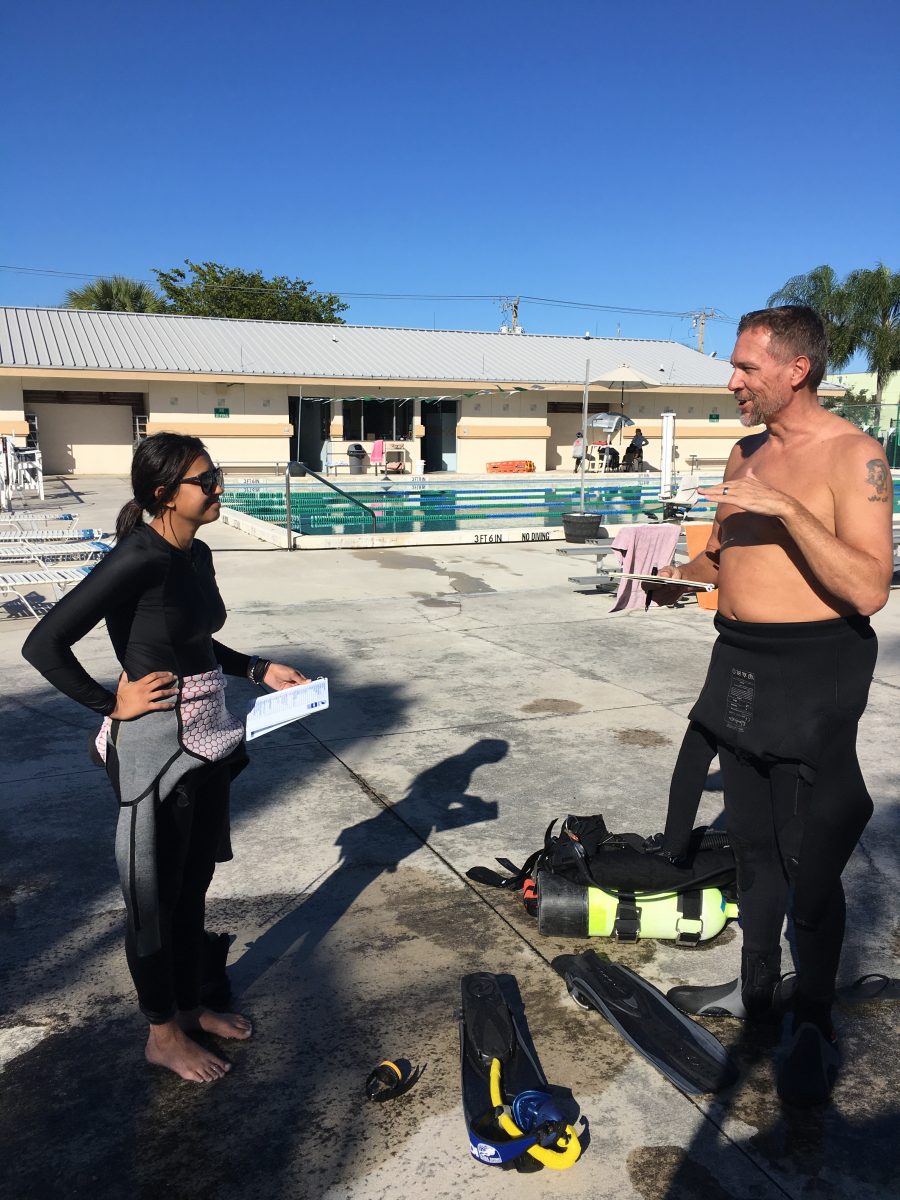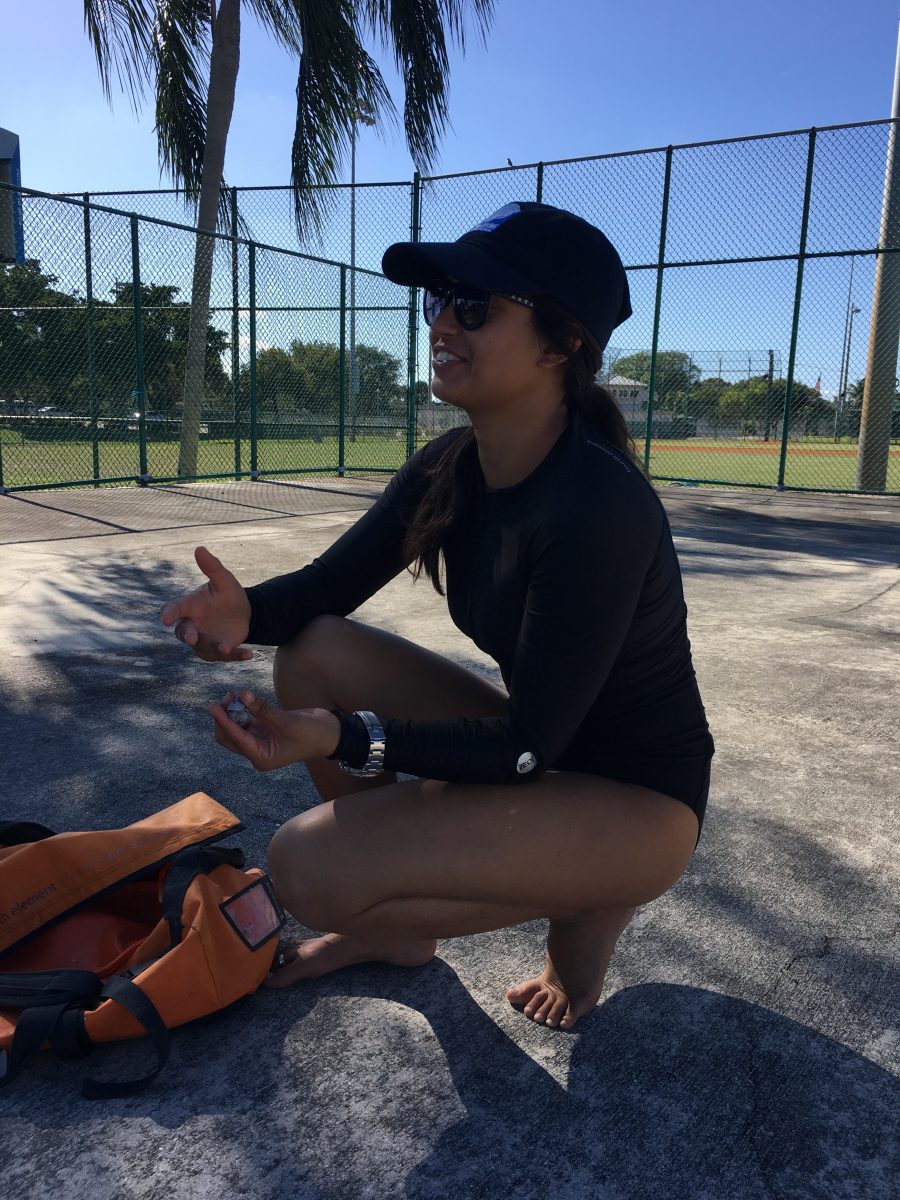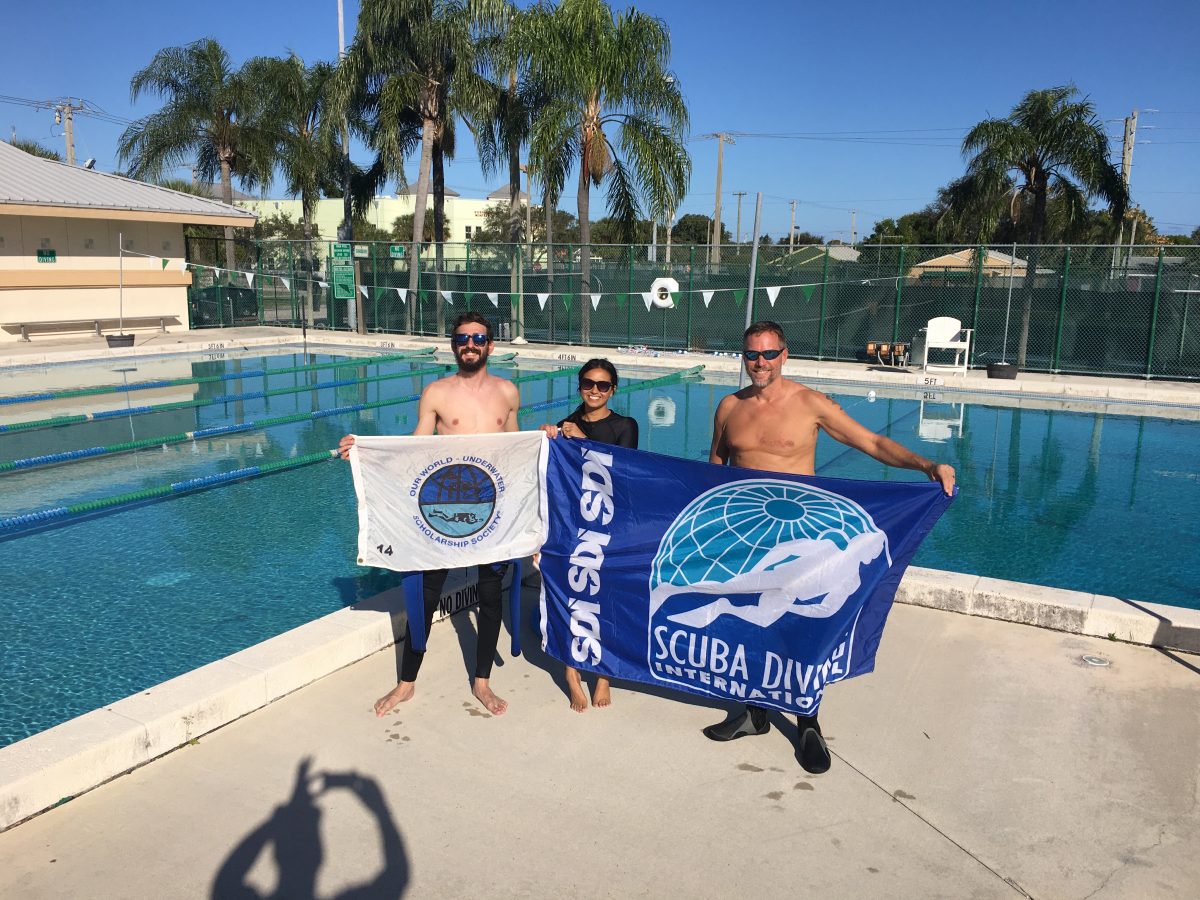At the beginning of the year when I received the scholarship, I wrote out a list of goals I wanted to achieve by the end of the year. However, as the year has progressed, many of those goals have changed or new ones have been added. Becoming a scuba instructor was not on this original list, but as I have met more instructors and learnt about the myriad benefits of this certification, I decided it was something I wanted to pursue. Serendipitously, I met with some of the folks from International Training Inc. (ITI) at DEMA this past November. They have been supporting the scholarship for a number of years and were as excited as I was about doing my Instructor Development Course (IDC) at their headquarters in Stuart, Florida. Amazingly, it worked out, and I just spent the last 9 days doing some intense training with some incredible people.
I am one of the few scholars to participate in one of their instructor courses out of their Headquarters, where they manage all the certifications in all of North America and the Caribbean, and also manage the regional offices they have globally. Doing my training there gave me a unique opportunity to see how they operate. ITI, started in 1994, is the umbrella organization that encompasses 5 different training agencies. These include Technical Diving International (TDI), Emergency Response Diving International (ERDI), Performance Freediving International (PFI), First Response Training International, and Scuba Diving International (SDI).
The company first started with TDI during the early 1990s when there was very little formalized training for technical diving purposes. TDI played a huge role in bringing tech diving to a wider audience in the world of diving. In 1998, ITI expanded its diving goals into the sport diving world by creating SDI. SDI is focused on creating dive courses that can be tailored for the individual divers’ needs based on environment and other factors. This lack of rigidity gives instructors some wiggle room to ensure that the courses they are teaching are best suited for their students. SDI was also the first training agency that mandated the use of a personal dive computer and developed the first e-learning modules in the diving world. Following this, in 2000, ERDI was developed as a training agency dedicated entirely to public safety diving and offered standardized training necessary to teams working under demanding conditions. First Response, as well as PFI are brand new additions to the team, and you can learn more about PFI and their origin story in my last blog post.
Being at headquarters was really inspiring! Stephanie Miele, the COO of the company, has been involved with ITI for most of its existence and is a powerful spearhead, and pretty cool woman. In a traditionally male dominated industry, it’s inspiring how many amazing women I have met this year. She and the rest of the team are super dedicated and friendly people who clearly believe in the company and its mission. It was an absolute pleasure meeting and working with them!
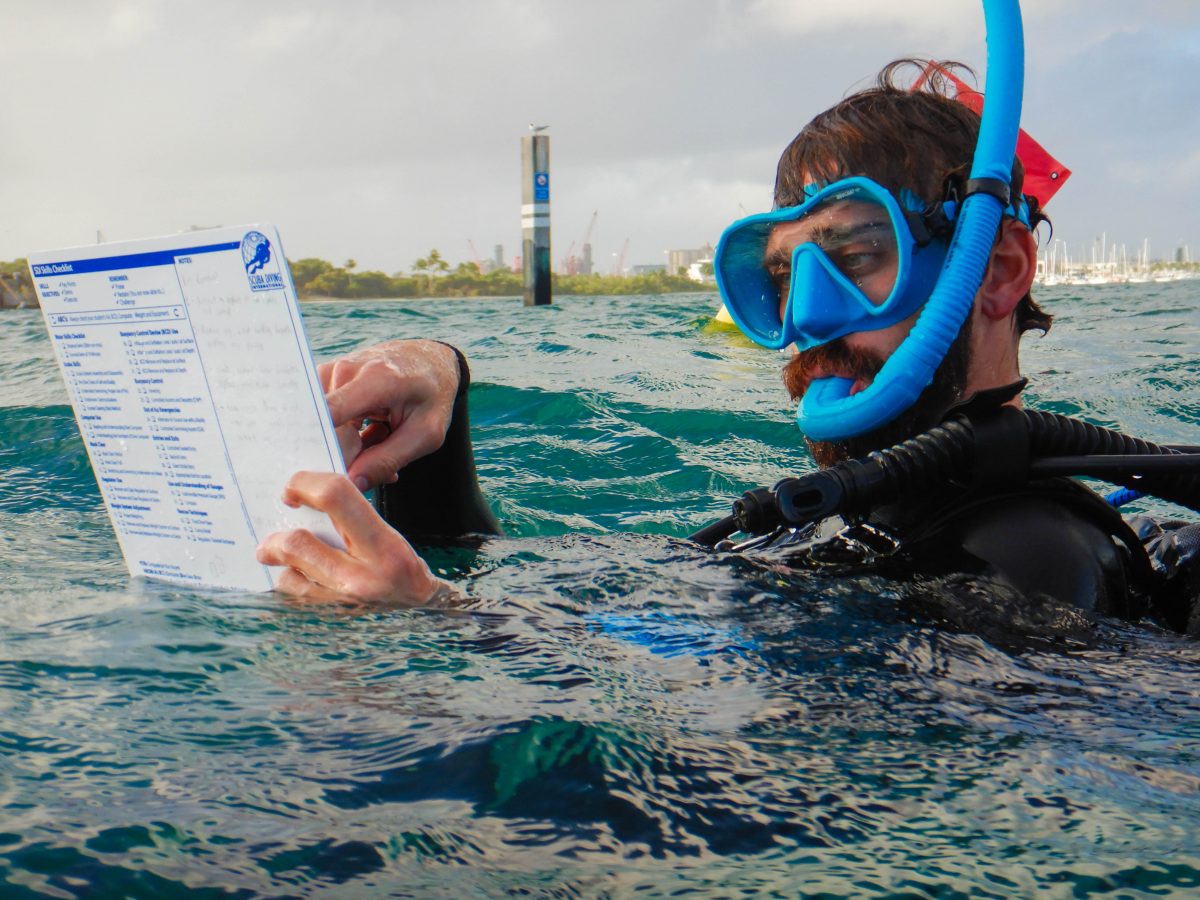
Such enthusiasm! (PC: Alan Cale)
This brings me to the actual purpose of my visit, the Instructor Development Course. I joined Jesse Iacono from ITI’s training and membership services department for an intense week of classroom, pool, and ocean training sessions. Jesse is a young and super qualified diver, and also an amateur comedian. Training with him was a hilarious time!
The first couple of days were spent in the classroom, learning about the standards and nuances of the SDI Instructor program. We then started spending time in the pool, to make sure that my skills were up to par and demonstration quality. As this course is focused on learning to teach, I had lots of homework preparing presentations, and teaching sessions in the classroom, pool, and open water.
It is very difficult to explain concepts simply that, to us as divers, are super familiar. This skill is vital in being an effective instructor, and over the week I could feel my perspective shift as I started seeing the skills and concepts I understood so well in clear broken down components that made them easier to teach.
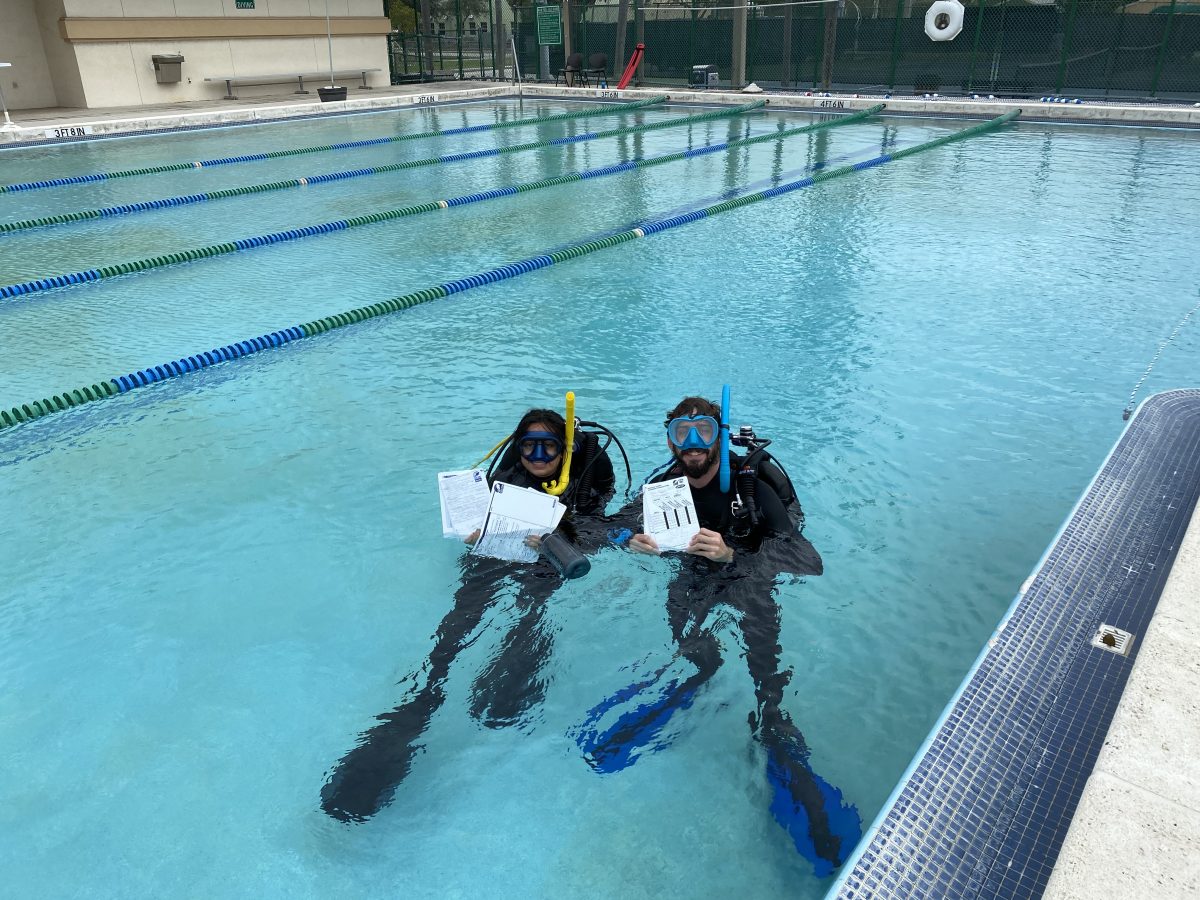
Finished our first pool session 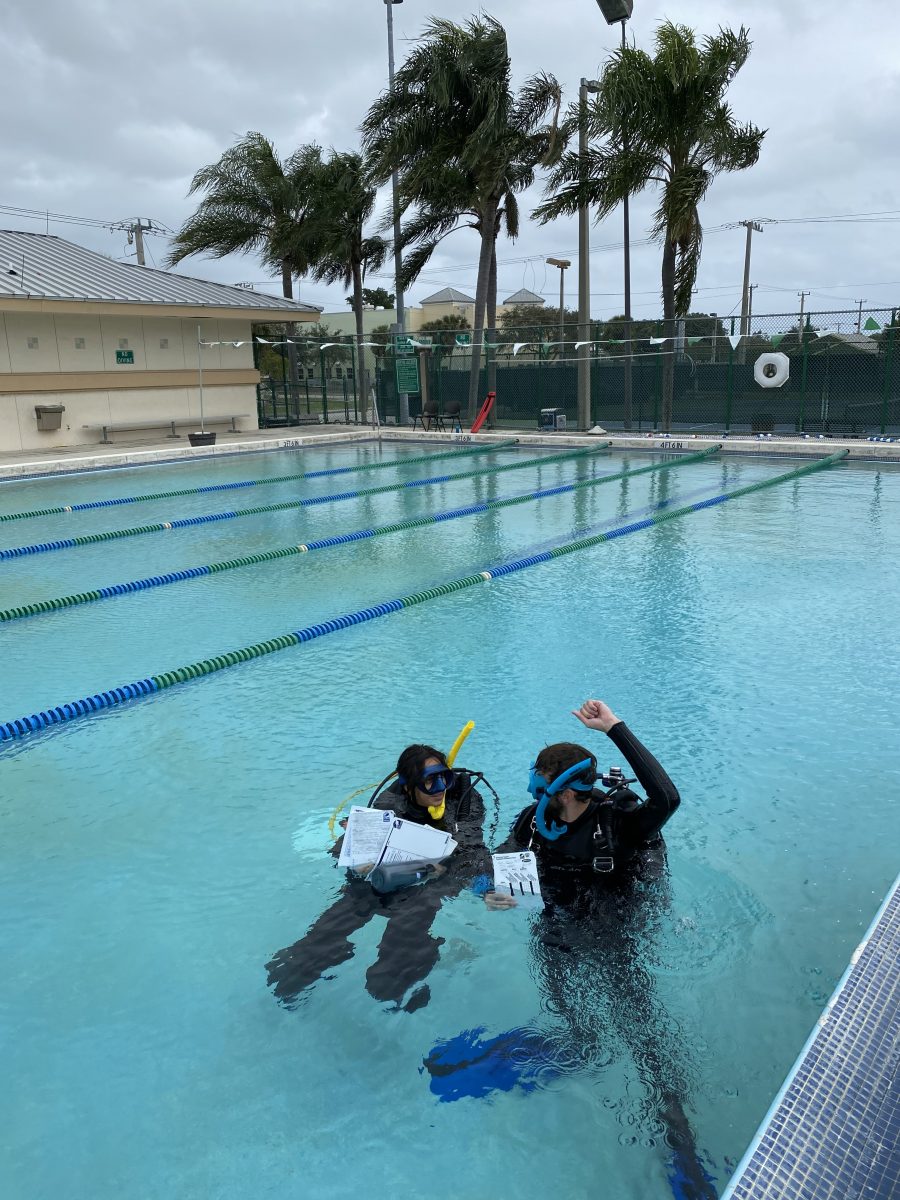
Trying to look Candid
After a couple days of this, we finally went to the ocean for my first open water “teaching session”. Jesse, Alan Cale – another awesome ITI employee, and I went down to Blue Heron Bridge. This site is one of Florida’s best shore dives and is well known for the cool tiny creatures that can be found. During this session, I designed and taught a lesson plan comprising a few key skills that students need to complete to become proficient divers. It was a really fun session, made even more so by the challenges my “students” threw at me.
The next day, we went on a boat dive to simulate open water dives 3 and 4. Though these dives had fewer skills that I needed to actively teach, I found it really difficult to change from a dive buddy to a dive instructor. As an Instructor, being in control of your students at all times is key to the safety of all involved. This means being in very close proximity (way closer than comfort) and being constantly vigilant to ensure that your students are OK and are diving well. Enforcing the right techniques from the get-go is an important part of learning.
After the 8 days of training, it was time for my exam. Brian Shreve, another ITI Instructor Trainer and super qualified diver, was my examiner. Having another instructor trainer evaluate the instructor candidate is needed to eliminate bias and ensure quality. The Instructor Evaluation Course (IEC), is comprised of a long day where I am required to teach a session in the classroom, the pool, and in the open water. I was given a couple days to prepare beforehand so I was ready to go, but also full of nerves. Presenting to Brian’s deadpan stare is an anxiety-inducing experience. But I made it through and passed all three sessions! It felt great to see my development over the duration of the course, and I was so stoked to see my excitement mirrored by Jesse, Brian, and the folks at ITI.
I am so happy to be a part of the SDI professional family. Working with them was such a positive experience and I am looking forward to exposing some real people to a sport as life-changing as scuba diving. As an aspiring scientist and an experienced scientific diver, I am hoping that this certification will enable me to train future marine scientists how to dive scientifically. I am so grateful to ITI and their team, as well as OWUSS, Rolex, and the rest of my amazing sponsors for making this happen.
